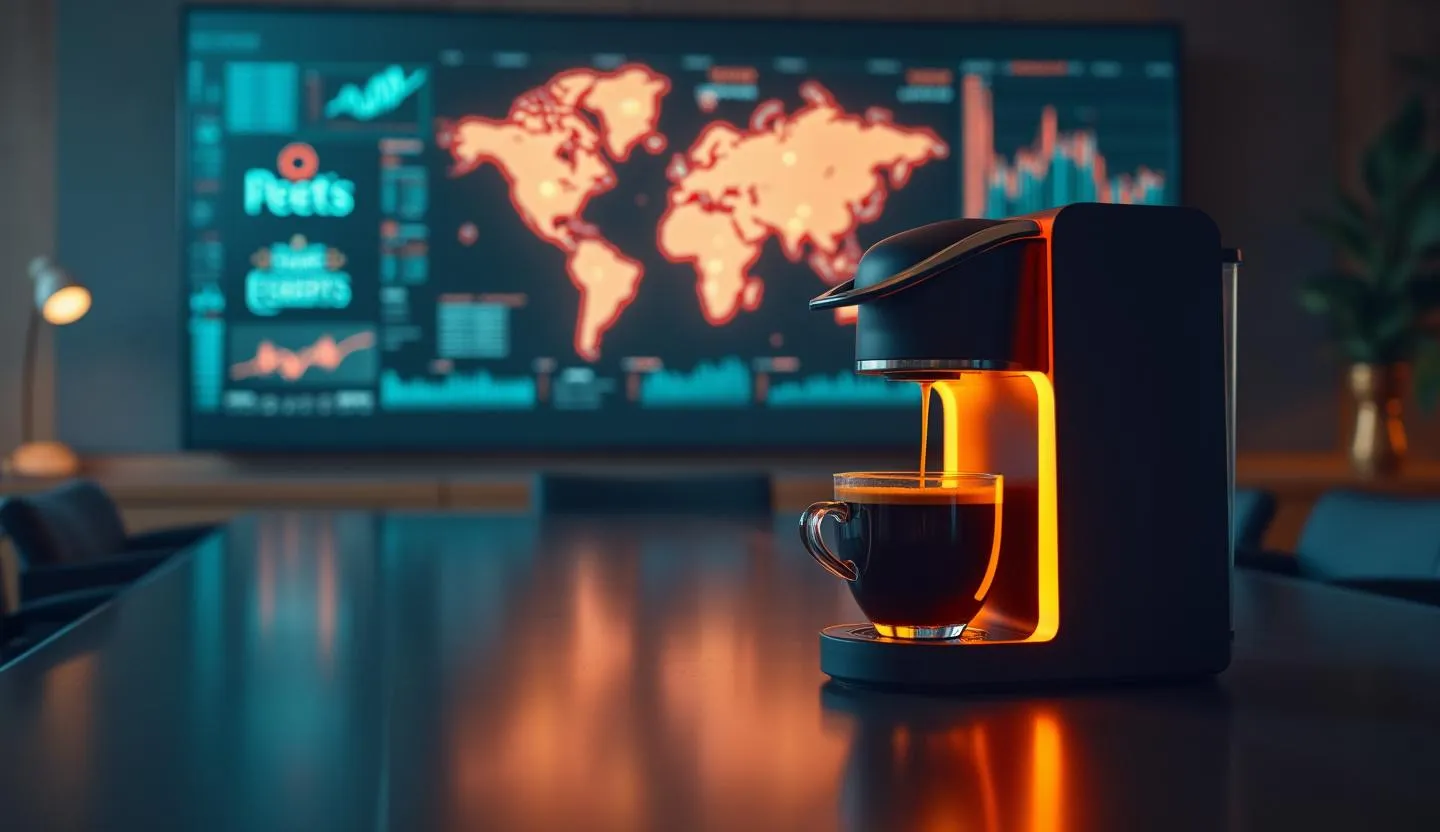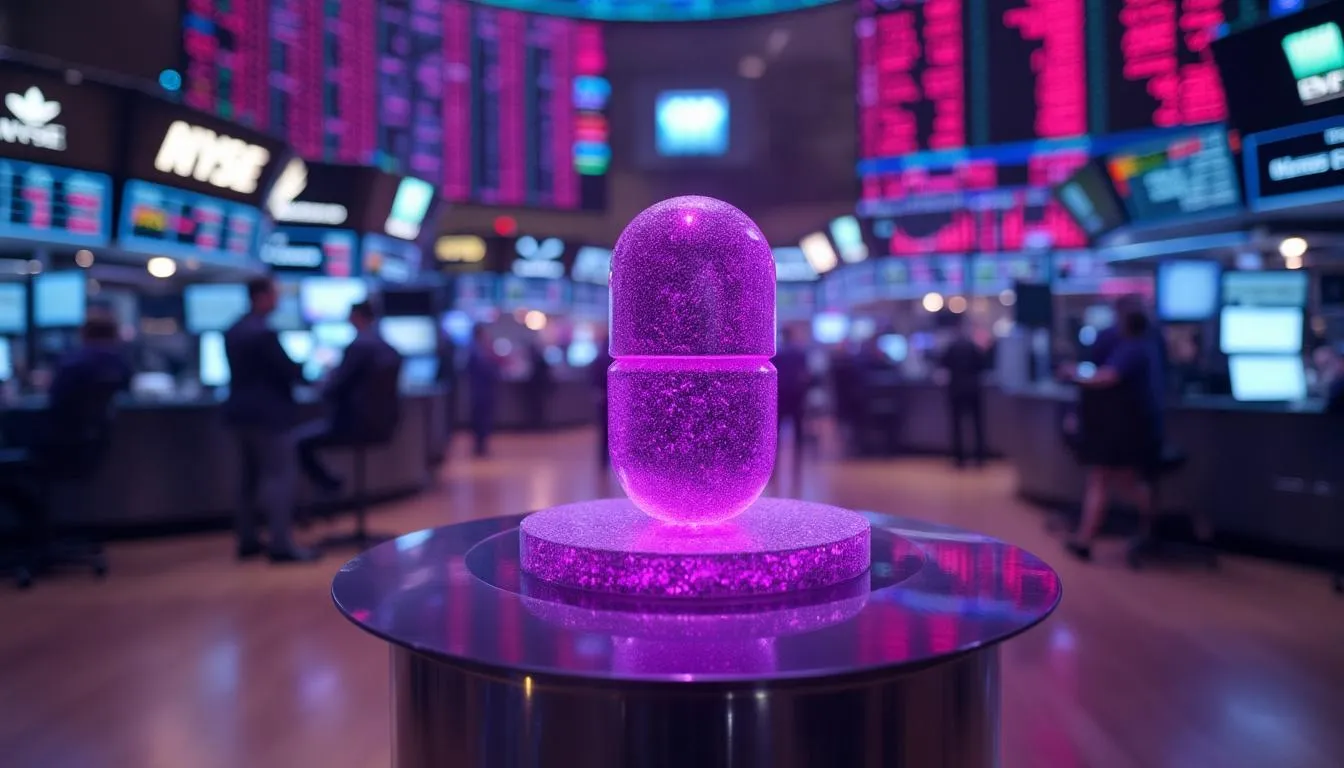Brewing Up Disruption: Keurig Dr Pepper’s Sector-Shaking Acquisition
In a week defined by relative calm and modest gains for the broader market, few moves have rattled the beverages and consumer staples sector quite like Keurig Dr Pepper Inc. (KDP). Known for its portfolio of iconic beverages and coffee solutions, Keurig Dr Pepper has taken center stage after unveiling a sweeping $18 billion acquisition of JDE Peet’s—the parent of Peet’s Coffee and an array of international coffee brands. The announcement not only triggered a sharp selloff in KDP’s shares, but also raised profound questions about the company’s strategic direction, sector leadership, and the risks of transformative M&A in a consolidating industry.
With shares down over 6% on extremely heavy volume and the market digesting implications for both the coffee and soft drinks landscape, Keurig Dr Pepper’s audacious move is a case study in market reaction to large-scale corporate bets.
Key Takeaways
Shares of KDP fell 6.08% to $29.31 (down from a previous close of $31.10), with over 51 million shares traded—well above average volume.
Keurig Dr Pepper announced an $18 billion acquisition of JDE Peet’s, aiming to create a global coffee powerhouse and subsequently split into two focused companies.
Market skepticism is high, with immediate negative price action and investor concerns about deal value, strategic fit, and execution risks.
Sector impact: The move reverberates across beverages and consumer staples, as rivals and analysts reassess the competitive landscape.
No major analyst upgrades or downgrades reported in the immediate aftermath, but commentary is cautious and watchful.
The Anatomy of a Sector-Shaking Deal
Keurig Dr Pepper: From Domestic Powerhouse to Global Ambition
Keurig Dr Pepper is a dominant force in North American beverages, blending a legacy of carbonated soft drinks (Dr Pepper, 7UP, Canada Dry) with a market-leading single-serve coffee system (Keurig). The company has thrived on brand innovation, distribution muscle, and a willingness to pursue growth through M&A. With the $18 billion bid for JDE Peet’s, KDP is now vying to become a top-tier player in the global coffee market—an arena where scale, supply chain, and branding are paramount.
JDE Peet’s, headquartered in Amsterdam, brings an extensive international portfolio: Peet’s Coffee, L’OR, Jacobs, Douwe Egberts, Kenco, Pilao, OldTown, Super, and Moccona. The acquisition would create a coffee business with $16 billion in annual sales, while the remaining beverage business would hold $11 billion in revenue. According to CEO Tim Cofer:
“Through the complementary combination of Keurig and JDE Peet's, we are seizing an exceptional opportunity to create a global coffee giant.”
— Tim Cofer, CEO, Keurig Dr Pepper (Fast Company)
Market Reaction: A Powerful Jolt of Skepticism
The market’s verdict on the deal has been swift and unforgiving. KDP shares tumbled over 6% during the session, and at one point were down more than 11% as investors processed the scale and complexity of the transaction. The volume surge—over 51 million shares—underscores the urgency with which market participants are repositioning.
Barron’s highlighted the prevailing investor sentiment:
“Investors appear concerned about the deal.”
(Barron’s)
Key concerns include:
The high price tag and potential dilution for existing shareholders.
Integration risk across brands, markets, and supply chains.
The wisdom of splitting into two businesses, and whether this unlocks value or creates new inefficiencies.
The Motley Fool captured the tone of doubt:
"Keurig Dr Pepper (KDP -11.34%)... announced its latest purchase on Monday—and investors weren't too happy to hear the news. Assertively trading out of the company's stock, they left it with an over 11% loss on the day." (The Motley Fool)
Performance Overview: Price, Volume, and Volatility
Metric | Current Value |
|---|---|
Price | $29.31 |
Previous Close | $31.10 |
% Change | -6.08% |
Intraday Low | $29.21 |
Volume | 51,217,301 |
The sharp single-day decline and extraordinary volume reflect the market’s unease. Historically, KDP has been a defensive, relatively low-volatility play within staples. This move marks a rare moment of sector-level volatility for the stock.
Strategic Rationale: A Tale of Two Companies
Post-acquisition, Keurig Dr Pepper plans to split into two separate entities:
A global coffee business (including Keurig and JDE Peet’s)—to be headquartered in Burlington, MA (with international HQ in Amsterdam), led by current CFO Sudhanshu Priyadarshi.
A focused beverage business (Dr Pepper, Canada Dry, 7UP, energy drinks)—to be based in Frisco, TX, led by current CEO Tim Cofer.
Leadership asserts that the split will allow each business to pursue tailored strategies, compete more nimbly, and unlock shareholder value through focus and scale. Skeptics worry about execution complexity and whether the sum will ultimately be greater than the parts.
Analyst & Market Sentiment: Wait-and-See Mode
So far, the analyst community has not issued major upgrades or downgrades, but commentary is broadly cautious. The sheer size and ambition of the deal, coupled with the stock’s plunge, will likely prompt a wave of deep-dive research and revised price targets in the coming weeks.
No major upgrades/downgrades yet.
Investor sentiment is defensive.
Sector peers are seen as potential beneficiaries if KDP’s integration falters.
Broader Sector Impact & Competitive Landscape
This move comes as consumer staples firms seek to reignite growth through global expansion and brand consolidation. With coffee consumption rising and international brands gaining traction, KDP’s move is both bold and fraught with risk. Rivals—ranging from Nestlé to Coca-Cola—are monitoring closely. Should KDP succeed, the deal could redefine global coffee competition for years to come.
Conclusion: A Pivotal Test for Keurig Dr Pepper and the Sector
Keurig Dr Pepper’s $18 billion leap into global coffee is a sector-defining gamble, instantly making it the most-watched name in beverages this week. While the company’s ambition is clear—global scale, brand synergy, and focused operations—the market’s immediate reaction is a reminder that size alone does not guarantee success. Execution risk, integration challenges, and the wisdom of splitting the business will determine whether this move becomes a textbook case of value creation or a costly misstep.
For investors, KDP’s volatility underscores the need for caution in the face of transformational M&A. Sector peers may benefit from KDP’s distraction or missteps, while successful execution could elevate the company to a new echelon of global leadership. In the meantime, all eyes remain on how Keurig Dr Pepper navigates this high-stakes brewing process.

.svg)
.svg)
.svg)
.svg)

.svg)

.svg)
















